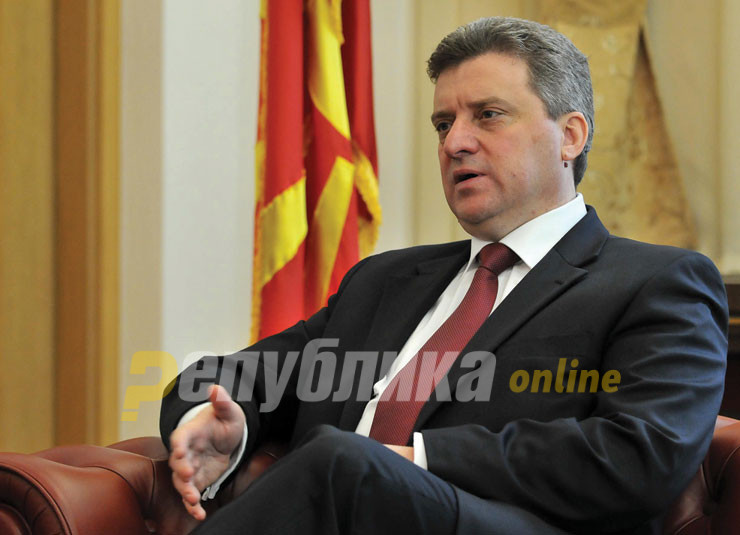At the end of his term, Macedonian President Gjorge Ivanov is faced with the decision whether he will pardon former Interior Minister Mitko Cavkov and 15 other police officials and opposition activists, who were sentenced to draconian 211 years in prison over the April 2017 incident in the Parliament.
This is now the largest of the series of politically motivated cases which the Zoran Zaev Government initiated against its political opponents. The case was used to blackmail a group of VMRO-DPMNE members of Parliament, three of whom broke and voted with Zaev, in favor of renaming Macedonia into North Macedonia. They received selective amnesties, while common citizens and protesters who joined their call and rallied to the Parliament, were sentenced to between 7 and 15 years in prison on “terrorism” charges.
Those sentenced include Jane Cento, heir to the family name of Macedonia’s first President Metodija Andonov Cento – himself prosecuted by the Communist regime following the Second World War.
If Ivanov plans to pardon the political prisoners, he has little time remaining, given that the decision, according to legal experts, could be revoked within 30 days by him or by the next President.
Law professor and activist Dimitar Apasiev listed the series of amnesties given for political purposes. These include a broad amnesty to mark the independence from Yugoslavia in 1991, and the 1999 pardon of a group of ethnic Albanian politicians who raised the Albanian flag in Gostivar in 1997, prompting a police intervention which lead to four casualties. Commanders and members of the Albanian UCK/NLA terrorist group which began the 2001 insurgency also received a broad amnesty, as they went on to political careers through the “untouchable” DUI party.
In 2016, President Ivanov tried to put an end to the growing political crisis by giving pardons to politicians from all major parties who were charged by the state prosecutors or by the recently formed Special Prosecutor’s Office. Ivanov then said that it is clear these charges are undermining Macedonia’s sovereignty and are pushing the country towards a forced name change and internal recomposing. Under pressure from the US and the EU, the recipients of the pardons were forced to ask Ivanov to withdraw his decision and a law to reverse the pardons was passed.
After the name VMRO-DPMNE led Government was brought down, Zaev’s selective amnesty in the Parliament incident case was adopted, and covered 20 people, most notably the members of Parliament who had bargained with Zaev to receive amnesty in exchange for their votes. After this amnesty, prosecutors loyal to Zaev expanded the case to include other VMRO officials such as deposed Speaker Trajko Veljanoski as well as former ministers Mile Janakieski and Spiro Ristovski, who were attacked in prison by Albanian terrorists immediately after they were detained.





Comments are closed for this post.